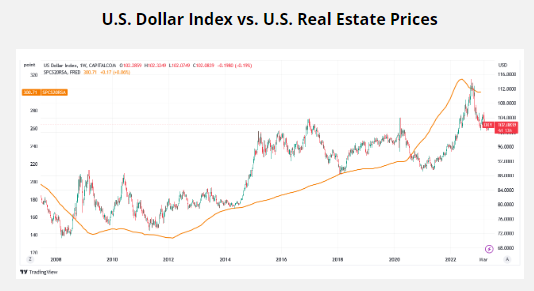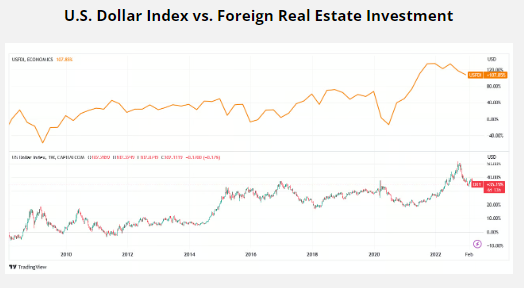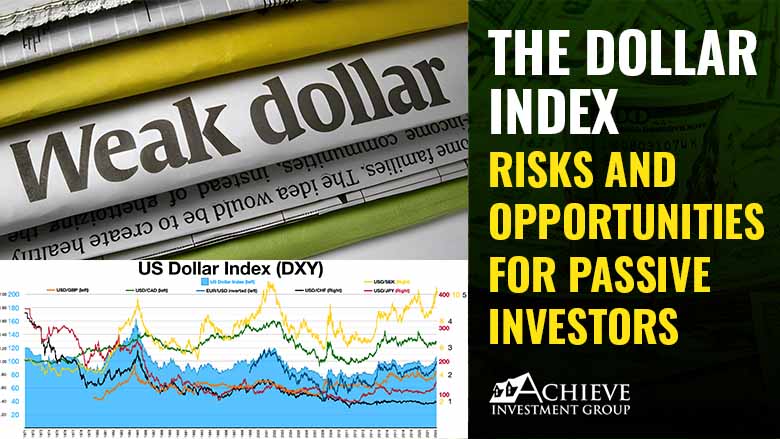We hope you’re having a fantastic week! In this edition of our monthly newsletter, we will be shedding light on the impact of the U.S. Dollar on passive real estate investing, along with providing you valuable insights and trends to help you make informed decisions in your investment journey.
The U.S. dollar has long been the dominant global currency, influencing investment decisions across various asset classes, including passive real estate investing. The dollar’s strength or weakness directly impacts investment returns, property prices, and overall market stability.
What is the U.S. Dollar and why does it matter?
The U.S. dollar is the world’s primary reserve currency, meaning it is the currency that other countries hold in their reserves. Additionally, the U.S. dollar is the most traded currency globally and serves as the benchmark for many commodities, including gold and oil.
The value of the U.S. dollar has a significant impact on the economy and global financial markets. When the dollar is strong, it increases the purchasing power of Americans and allows them to buy more goods and services. However, a strong dollar can also have negative effects on the economy, such as hurting exports and making it more expensive for foreigners to buy U.S. goods.
The Impact of a Strong Dollar
A strong U.S. dollar can have both positive and negative effects on passive real estate investing. On the one hand, a strong dollar can increase the purchasing power of foreign investors, making U.S. real estate assets more attractive. This can lead to increased demand for U.S. real estate assets, which in turn can drive up prices and increase returns for investors.
On the other hand, a strong dollar can also make it more expensive for U.S. investors to invest in foreign real estate assets. This can limit the opportunities available to investors and reduce diversification options.
Register For Our Passive Investor Educational Webinar Protecting Your Equity During Uncertain Times Strategies For Today’s Challenging Investing Environment!
Jun 22, 2023, 07:00 PM Central Time (US and Canada)

As the graph above illustrates, there is a clear correlation between the U.S. dollar index and U.S. real estate prices, with periods of a stronger dollar generally coinciding with rising property prices.
📊 U.S. Dollar Strength and its Impact on Real Estate Investment
A strong U.S. Dollar often leads to decreased demand from foreign investors, as the cost of acquiring U.S. real estate becomes more expensive for them. This, in turn, can translate to lower property prices, creating more opportunities for domestic investors.

The graph above shows a clear inverse relationship between the U.S. Dollar Index and foreign real estate investments. When the dollar strengthens, foreign investment tends to decrease, and vice versa.
💡 Insights: For passive investors, this presents an opportunity to enter the market at a lower price point, as well as take advantage of potentially higher returns due to lower competition from foreign investors.
Fluctuations in the U.S. Dollar can have a profound impact on passive real estate investing, both domestically and internationally. By staying informed of these trends and adapting your investment strategy accordingly, you can minimize risks and maximize returns.
Get a Free Copy of my #1 Best-Seller Passive Investing In Commercial Real Estate


